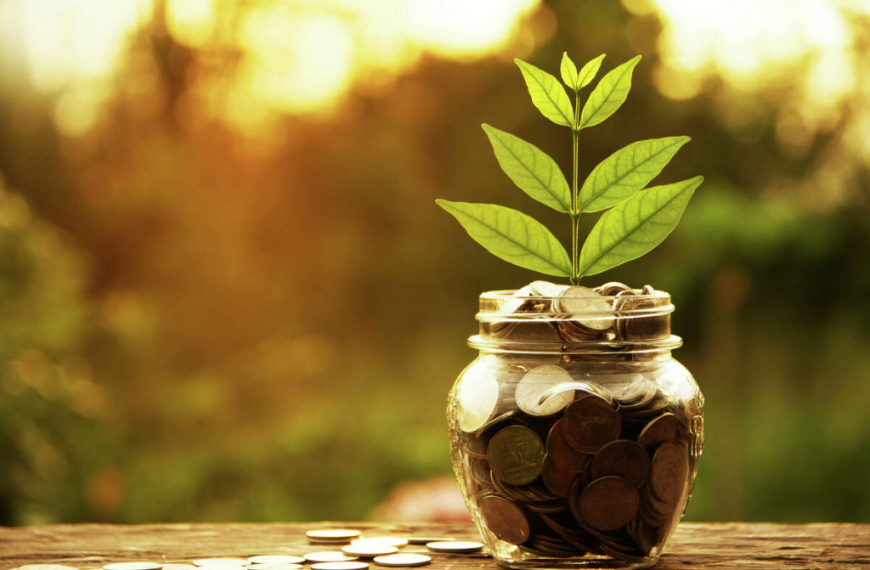In today’s world, where environmental concerns are increasingly urgent, it has become essential to adopt a sustainable lifestyle rather than merely choosing to do so. However, many people are deterred by the misconception that living sustainably requires sacrificing comfort and indulging in restrictive habits. The reality is that embracing sustainability and frugality can go hand in hand, allowing us to create a future without straining our wallets.
Reimagining Frugality within the Context of Sustainability
Frugality is often misunderstood as leading a life of deprivation. In truth, it involves making choices to optimize resources and reduce waste. By redefining frugality through the lens of sustainability, individuals can strike a balance that benefits both their well-being and the environment.
1. Mindful Consumption
The journey towards sustainable living begins with a change in mindset. It entails understanding the distinction between necessities and desires while focusing on what truly matters. Practicing mindful consumption involves asking ourselves questions before making purchases: Do I genuinely need this? Will it bring value to my life? Is there a more sustainable alternative?
By refraining from unnecessary purchases, we not only save money but also decrease our demand for products that contribute to environmental degradation. Choosing quality over quantity extends the lifespan of items, reducing the need for replacements and minimizing our impact on the environment.
Another important aspect of a sustainable lifestyle is embracing the idea of reusing. Secondhand stores, thrift shops, and online marketplaces offer a range of affordable and eco-friendly options. Whether it’s clothing, furniture, electronics, or home decor, there are plenty of treasures waiting to be discovered by conscious consumers.
Upcycling is another way to integrate sustainability into daily life. It involves transforming discarded materials into something valuable. For example, repurposing glass jars as storage containers or turning pallets into unique furniture pieces not only reduces waste but also encourages resourcefulness and nurtures creativity.
Energy and resource conservation play a role in frugality. Simple habits like turning off lights when not in use, unplugging devices, and using energy-efficient appliances can significantly lower electricity bills and decrease overall energy consumption.
Water conservation is equally important in our efforts to be sustainable. To save money on utility bills and preserve our water resources, it’s important to address leaks, use water-efficient fixtures, and be mindful of water consumption while cooking and cleaning.
4. Embracing Minimalism; Less is More
Living a minimalist lifestyle aligns beautifully with both frugality and sustainability. When we consciously declutter and let go of possessions, we gain an appreciation for what truly matters. Minimalism encourages investing in experiences rather than accumulating material goods, leading to a more fulfilling life while also saving money.
5. Cultivating Home Gardens and Supporting Local Food Sources
Growing a garden, whether it’s on a windowsill, balcony, or backyard, is an eco-cost-effective practice that provides fresh produce without the environmental impact of large-scale agriculture. Herbs, vegetables, and even fruits can thrive in small spaces, offering a sense of accomplishment while staying connected to nature’s rhythms.
By supporting local food sources like farmers markets and community-supported agriculture (CSA) programs, we not only boost our local economy but also reduce the carbon footprint associated with long-distance food transportation.
6. Prioritizing Sustainable Transportation
Transportation plays a significant role in carbon emissions as well as household expenses for many people. By opting for transportation options such as walking, cycling, carpooling, or using public transit, individuals can save on fuel expenses while actively contributing to a healthier environment.
7. DIY and Homemade Products
Embracing the “do it yourself” (DIY) mindset is an asset when striving for a sustainable lifestyle. Creating cleaning products using natural ingredients or crafting homemade gifts not only helps save money but also reduces exposure to harmful chemicals commonly found in commercial products.
8. Investing in Renewable and Environmentally Friendly Technologies
If circumstances permit, investing in energy sources like solar panels can lead to long-term financial savings by significantly reducing or even eliminating electricity bills. Governments and organizations often provide incentives to promote the adoption of eco-friendly technologies, making the initial investment more accessible.
9. Conscious Waste Management
Practicing the three Rs—reduce, reuse, recycle—remains an essential aspect of sustainable living. However, it is important to prioritize reducing and reusing before resorting to recycling. Composting waste not only diverts it from landfills but also enriches the soil with valuable nutrients for gardening purposes.
10. Thoughtful Financial Planning
Living sustainably and frugally requires a thoughtful approach to financial planning. Crafting a budget that reflects your values and aspirations can be instrumental in prioritizing spending on what truly matters, such as needs and meaningful experiences. This approach helps avoid expenses on items with a limited lifespan that contribute significantly to environmental harm.
In Conclusion
The notion that sustainable living is achievable only for those with significant financial resources is outdated. Embracing a sustainable lifestyle not only minimizes our ecological impact but also paves the way for a more purposeful and satisfying existence. By redefining frugality to encompass consumption optimization, resourcefulness, and conscious choices, individuals can make a positive difference in both their finances and the environment. As we confront the challenges posed by climate change and environmental degradation, merging sustainability with frugality provides an accessible path toward a more sustainable future.









